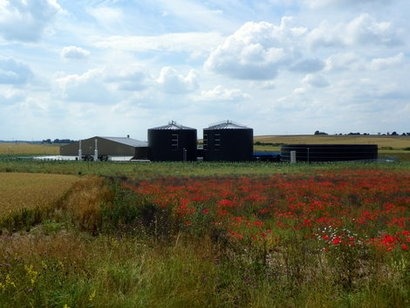
The main message of the event was that the achievement of a truly circular economy implies fully implementing the waste hierarchy, starting with waste prevention. Waste-to-energy can sometimes be justified but the focus should be on preventing, reuse, repair and recycling, while alternative, promising waste-to-energy practices, such as biogas, should be supported.
The “Waste-to-Energy under the Circular Economy” event was organised by the EESC on 15 May in Brussels.
The hearing gave experts from civil society organisations and business associations the opportunity to input into the opinion the EESC is currently drafting on the Commission's communication “The role of waste-to-energy in the circular economy” The discussions revealed the potential and shortcomings of the current legislation and suggested possible future avenues for Waste-to-Energy.
“The transition to a full circular economy will only be possible if we set the right ambitions and targets for prevention (such as Eco-design), reuse and recycling, but we must also not forget the importance of economic incentives to mitigate the costs and challenges” said Cillian Lohan, EESC rapporteur for this opinion.
Participants criticised the narrow scope of the EC communication, which only looks at municipal waste, and urged policy-makers to make sure ambition targets are not watered down by also tackling commercial and industrial waste's potential for energy recovery.
The discussions highlighted that there is an urgent need to progress towards higher levels of the waste hierarchy (prevention, reuse & repair and recycling). This starts with providing effective Eco-design rules and guidance that will help develop longer-lasting products that can be more easily repaired, remanufactured, upgraded and – if no other option is available – dismantled and recycled.
Antonello Pezzini, EESC co-rapporteur added that waste-to-energy can sometimes be necessary in order to avoid landfilling and releasing hazardous substances in the environment but more importantly, new technologies, if applied properly, can lead to a much more efficient way of getting energy out of waste, such as anaerobic digestion to produce biogas/biomethane out of properly sorted organic waste.
The EESC opinion will address the conditions for energy recovery out of unsorted, non-recyclable waste to be justified. Emphasis was put on smart use of waste-to-energy, based on existing capacities, without curtailing bolder action on prevention. The discussion also addressed incentives (taxes, green public procurements, etc.) and the most resource-efficient technologies for waste-to-energy to be fully compatible with a circular economy.
Waste-to-energy capacities are unevenly distributed amongst Member States, with some Southern and Central and Eastern European countries landfilling most of their waste whereas some Northern countries suffer from overcapacities. Discussions also stressed that public money should fully contribute to implementing the waste hierarchy, in particular when it comes to EU funds.
The EESC opinion will be adopted at the EESC plenary in July, along with another opinion dedicated to the Eco-design Working Plan 2016-2019.
Image: Farm anaerobic digester
For additional information:

